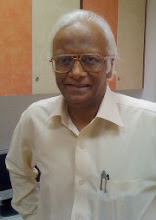TSJ’s former Dean Gautam Adhakari from Washington replies to Kashika Saxena’s questions:

Has the concept of news changed since you joined the profession well over 40 years?
The concept of news has not changed but the manner in which it is presented has. Also, what kind of news should hit which part of a paper or broadcast segment and the content mix in newspapers have changed. Print has had to adjust to television in order to remain relevant and that has required many changes in assessing newsworthiness. Television has been setting the content mix agenda (heavy on entertainment and sport) by and large even as the political agenda is often set, at least in the US, by serious newspapers like the New York Times. The changes have been happening at various speeds in different countries around the world. In India, TV is exploding and has begun to dominate the media market in India though newspapers have managed to hold out for the time being. In the West, blogs, the internet and social networking (Facebook, Twitter, Text messaging) are a threat to both newspapers and TV. (I could speak for an hour or two on this subject, as I used to, but in a short answer can't elaborate more than I have).
Which are the global newspapers you admire most?
The New York Times: Highly balanced, thoughtful, mature without being boring. Strong on analysis, good commentary.
The Financial Times: Excellent source of economic information and perspective, it also has fine cultural coverage.
The Economist: A weekly library in capsule form. Wise, witty and irreverent. It is a must-read for people like us.
The Guardian: A very informative paper which is not as leftist as it used to be though it remains left-leaning.
(I don't want to recommend papers in languages other than English because all my reading today is in English).
Which are the five books you would like to recommend to students of TSJ that could be called `must read’?
A very difficult question to answer because I would probably recommend 50 books, not five. History and basic economics are crucially important. Essential to a journalist's intellectual growth would be a book on world history, one on modern Indian history (Ramchandra Guha's India After Gandhi would serve the purpose), a couple of books (non-technical) tracing India's economic development, a book or two on globalization, and some modern fiction. For style, I would suggest George Orwell for classical journalism and a couple of books by humorous columnists. (I could go on and on but space and time are limited).



No comments:
Post a Comment